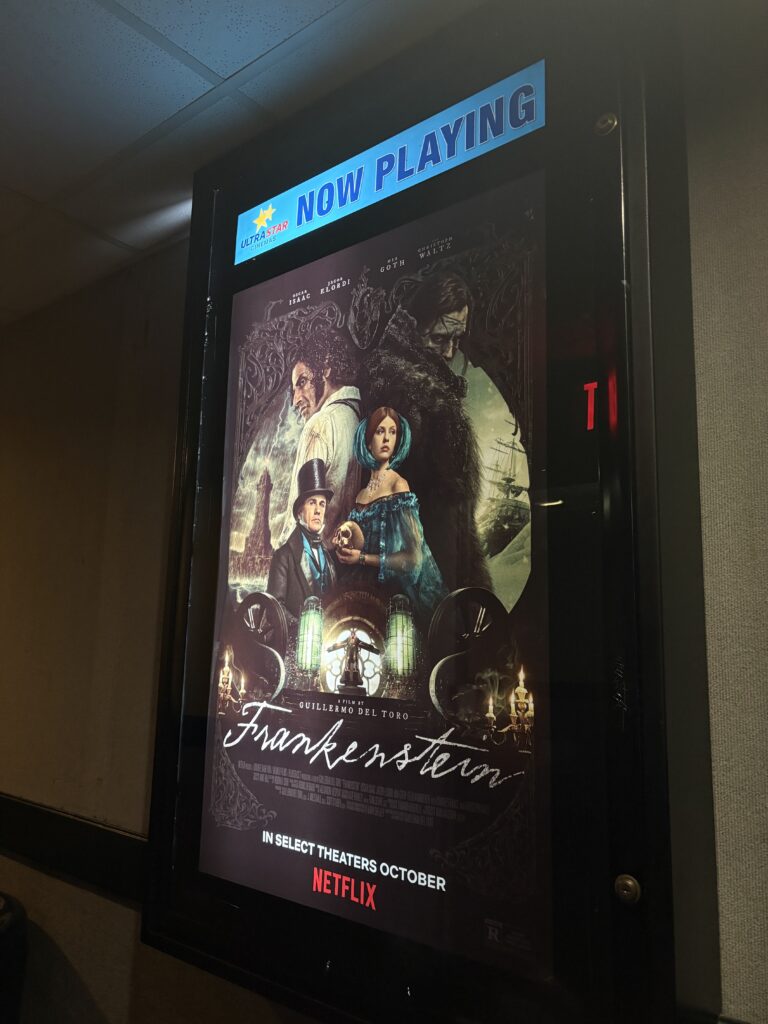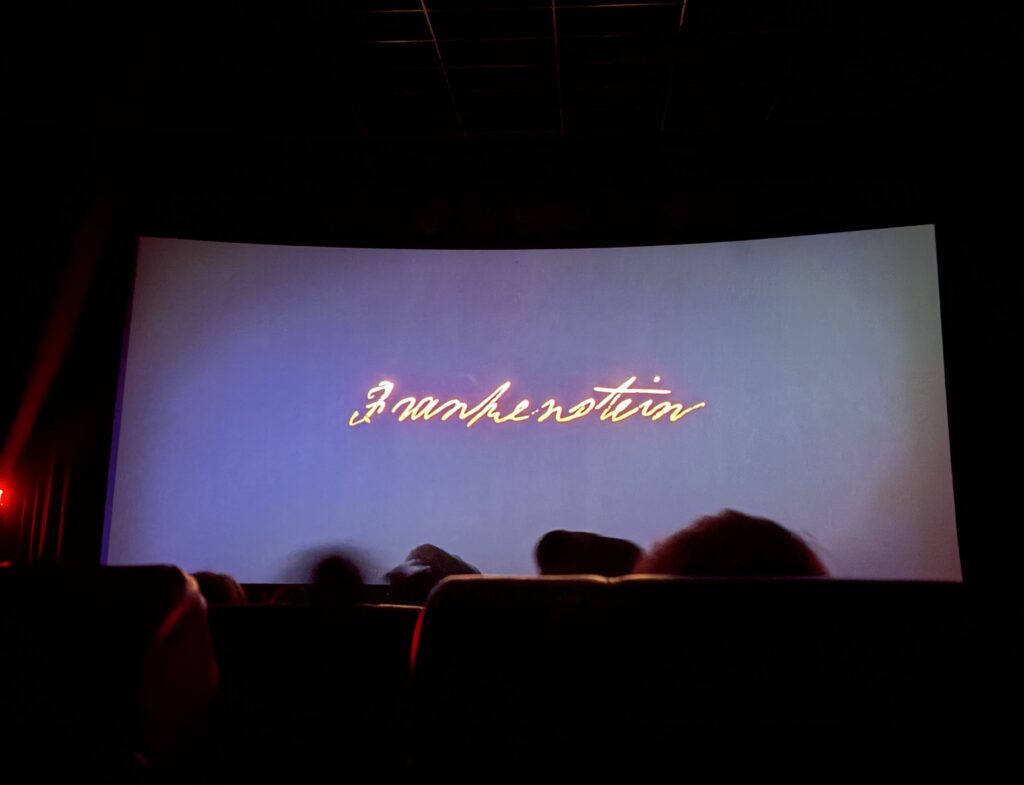Editor’s Note: This article contains spoilers to the recent “Frankenstein” adaptation. Grace Chaves is a third-year journalism major and The Point’s opinion editor. The opinions expressed in this article do not necessarily reflect those of The Point.
Growing up, I had heard bits and pieces of Mary Shelley’s “Frankenstein” story. Disney Channel was often on in my home, so I constantly heard silly references to the story and overly dramatic teenagers yelling, “It’s alive!” But as a kid, I was terrified of spooky stories and stayed far away from the original book. It wasn’t until this year’s Halloween weekend that I finally learned the entire story of Victor Frankenstein and his creature through Guillermo Del Toro’s recent “Frankenstein” adaptation.

As someone who only knew the middle of this story through the lens of cringey early-2000s TV shows and movies, what surprised me is that Del Toro’s creature is far from what we see in pop culture. He is not a terrifying green monster, but rather a being whose human dignity has been stripped from him by the abuse of his creator. Frankenstein says, “In seeking life, I created death.” Throughout the entirety of the film, he sees his creation as a thing rather than a person with intellect and a conscience.
Frankenstein is portrayed by Oscar Isaac, who took on this role masterfully. His performance in “Frankenstein” is second only to his portrayal of Marc Spector and Stephen Grant in Marvel’s “Moon Knight” TV show. He plays the part of a monomaniac with precision and ease, bringing the obsessive and passionate nature of Frankenstein to life.
I was also blown away by Jacob Elordi’s portrayal of The Creature, the humanoid created by Frankenstein. “The Kissing Booth” and “Saltburn” heartthrob was an unexpected yet perfect choice for The Creature. Elordi added depth to this film, making The Creature come to life.
The movie is divided into three acts, beginning with Frankenstein telling his story to the sailors, flashing back to Frankenstein’s childhood and rise to success and finishing with The Creature’s tale of being created and hurt by his maker. It encapsulates both main characters’ deep loneliness, which is what makes this movie the gripping tale that it is.
Del Toro seemed to have to focus less on the physical horror of “Frankenstein” and instead tapped into psychological horror. While the first half of the movie is chilling, with its graphic cadavers and gore, the second half is almost entirely focused on the terror of betrayal, prejudice and suicidal ideation.
Shelley dedicated “Frankenstein” to her father. Knowing that she had her own father in mind while writing this story makes Frankenstein’s hatred toward The Creature all the more haunting. The chemistry and tension between these characters was perfect, and it makes for a tear-jerking ending as Frankenstein calls The Creature his son.
“If death is not to be, then consider this, my son: While you are alive, what recourse do you have but to live?” Frankenstein says.

Throughout the film, The Creature longs to be put out of his misery. He’s desperate for human connection, and when those connections are lost, death seems more appealing than life. After all, Frankenstein’s only goal now is to kill him. But after he and The Creature have heard each other’s points of view, he urges his creation to maintain the will to live even as he lies dying. The last frame we see is The Creature walking by himself in the snow, heading into the sunrise and onto new horizons.
The CGI had some weak moments, which felt like a reminder that this is a Netflix film, but it was still by far one of the most visually appealing movies I’ve seen in a while. From the stunning architecture of Frankenstein’s tower to the simple camera tricks when The Creature was hiding in the barn, this film was satisfying to watch. Despite its two-hour and 29-minute runtime, it never dragged or lacked in visual appeal.
While they did sometimes pull directly from the book, the scriptwriters did an incredible job at writing their own dialogue that felt akin to something Shelley would write. One of my favorite lines is when The Creature says to Frankenstein, “I am obscene to you, but to myself I simply am.”
